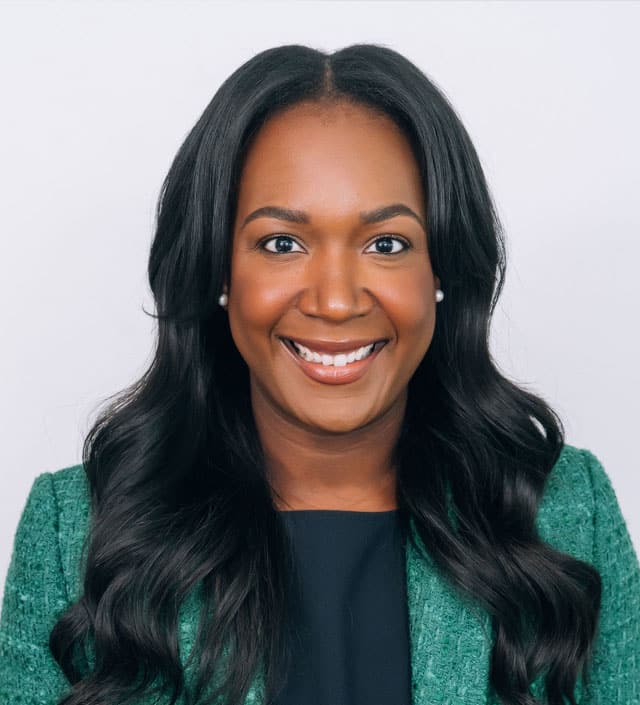
I’ve had the privilege to work with clients in or near retirement since 2012. It’s rewarding to help them understand their retirement plan options and provide strategies in their families’ best interests so they can feel confident in their financial plan. However, I’ve also noticed that planning for retirement, or the idea of retiring, tends to be more appealing for most individuals than retirement itself.
From the perspective of someone in their late 20s, like myself, it seems like it should be easy to retire after spending a lifetime working and saving enough money for retirement. It’s logical, like 1+1=2 and work hard + save money = retire happy. However, as a financial planner, I’ve come to find the transition into retirement is surprisingly more difficult than one would suspect. This is where financial planning becomes more of an art than a science and why, at times, we can feel like therapists rather than financial planners.
“What Do You Do?”
In the U.S., we’ve become defined by our careers. The first question upon meeting someone new tends to be, “What do you do?” This notion of what we do for a living depicting who we are as a person starts in childhood. Adults ask kids, “What do you want to be when you grow up?” The common answers are doctor, firefighter, etc. When we think of our careers in this context, it’s understandable why many people have a hard time retiring: Our careers make up a large part of how we identify ourselves.
Some of our clients who are close to retirement or recently retired have started working with life coaches or psychologists because they fear that giving up their careers means giving up their purpose in life. Many can feel angst about letting go of their positions and allowing their successor to step in after spending a lifetime dedicating their time and energy to their career.
Within that single day that marks retirement, your clients’ daily routines are now entirely in their control. They can do what they want, when they want. While that seems nice in theory, all that extra time back can become daunting when your clients feels like they don’t know who they are or what their purpose is upon retiring.
Changing Relationships
Many clients feel they’re not only losing their sense of purpose but potentially also an entire community. We generally spend five out of seven days a week with our colleagues, clients, patients, etc. That’s more than 70% of our week, which is why we may feel closer to our colleagues than some of our own family members at times.
Relationships derived from the workplace become just as meaningful as the ones outside of work. However, our work may be the only commonality that keeps us connected with these individuals unless a relationship is formed beyond the work environment. Even then, our relationships outside of work may not be as strong as we perceive.
Some clients noticed they started getting invited to fewer events outside the office, or their so-called friends from work stopped returning their phone calls after they retired. Lockdowns and social distancing during the pandemic have also magnified and hastened these common divides.
These undesired and less-talked-about side effects of retirement are why it’s important for financial planners to remember it’s not always about the numbers when it comes to planning, especially retirement planning. While the financial plan may confirm an individual is financially ready for retirement, it doesn’t necessarily mean they’re emotionally ready. By empathizing with our clients, we may be able to help ease their transition into retirement.
Here are three ways to help:
Dedicate time for the qualitative side of planning.
While financial planners are generally numbers-oriented people, we must remember personal finance is personal. We tend to expect our clients to openly share their feelings and thought processes with us as their trusted advisors. However, I recently spoke with some of our clients for their thoughts around retirement. We had meaningful conversations for 30 to 45 minutes focusing solely on the emotional side of retirement rather than the financial aspect.
These conversations were unexpectedly more revealing than our standard review meetings. Many shared how their parents’ and/or grandparents’ retirement greatly influenced their outlook on their own retirement. Through each dialogue, there was a common fear around retirement: Fear of not knowing what to do next rather than fears around financial stability. Clients my age whose parents are about to retire worry their parents won’t know what to do with themselves.
As advisors, we may be able to comfort our clients by encouraging and listening to their emotions and reassuring them that what they’re feeling during the transition into retirement is normal and to be expected.
Encourage clients to have more experiences outside of work throughout their lifetime.
Many have heard that you may be more likely to develop Alzheimer’s disease when you retire early. The science behind this theory is neuroplasticity or lack thereof. Neuroplasticity is defined as “the biological changes that occur in the brain in response to a change in the real world or a new experience.” When we’re not challenging our minds and bodies, our brains are less stimulated and, as a result, functioning at a lower capacity.
According to researchers at the University of Texas at Dallas, “It is only when an individual experiences substantial and sustained demands on their cognitive system that plasticity will manifest itself.” This is highly important to be aware of at all ages, especially as individuals approach retirement age. It’s easy for many to get consumed by their work. However, as financial planners, we should encourage our clients to find passions and hobbies outside of their work.
New experiences lead to new relationships and communities beyond the workplace that may be more sustainable upon retirement. Building a strong foundation of who you are and what you enjoy doing outside of your career may make the transition into retirement more palatable.
Remind clients that retirement will evolve, just like life always does.
As financial planners, we understand that our clients’ financial plans are never truly finalized. It changes as life changes. Retirement planning is no exception. One may perceive their retirement as a long rest before they get involved in something again, whereas another client plans to call it quits for good. However, the opposite tends to happen: Most plans rarely ever go exactly as planned.
Many of our clients who moved into their “forever retirement home” have recently downsized. A colleague who retired and sold their business one month ago has already started consulting. So, it goes. We must remind our clients that retirement is just another part of life. It will change and it’s acceptable when it does.
When Retirement Comes Sooner Than Expected
Retirement can be tricky enough to adjust to when the date has been long-planned for. But those who lost their jobs during the pandemic or who’ve participated in the “The Great Resignation,” the ongoing exodus of workers quitting jobs during this time, may be even less prepared for retirement.
Now, with restrictions starting to ease and people being required to return to the office, I have noticed a trend around conversations that many no longer want to waste endless hours in traffic and prefer to work remotely. Others who may have contracted the virus or experienced another serious, life-threatening health concern are re-evaluating their lives and values.
Is the rat race over for Americans? Probably not, but there definitely seems to be more emphasis on a healthy work life balance these days than ever before. While clients in their early to mid-careers may be job hunting for more flexible positions or advocating for 4-day work weeks, many clients who anticipated retiring in 3-5 years are simply choosing to leave the workforce early.
Clients who decide to retire early may need some extra support to getting acclimated to their new lifestyle. It’s possible some may second-guess their decisions or realize they retired too soon.
Regardless of the financial plan and how successful the Monte Carlos analysis is, financial planners must recognize our clients face emotional challenges upon retirement. Many will struggle and undergo an identity crisis at the beginning. We have an opportunity to strengthen our client relationships by having meaningful conversations beyond the numbers.
Amie Agamata, CFP, is based in San Diego, Calif., with clients across the U.S. Her team’s business mission is “Working together to achieve financial success through understanding, education, and action©.” Amie is the incoming NexGen President-Elect for the Financial Planning Association (FPA) nationally, a member of the FPA Retirement Income Planning Advisory Council, and an incoming committee member of The American College Alumni Council.







